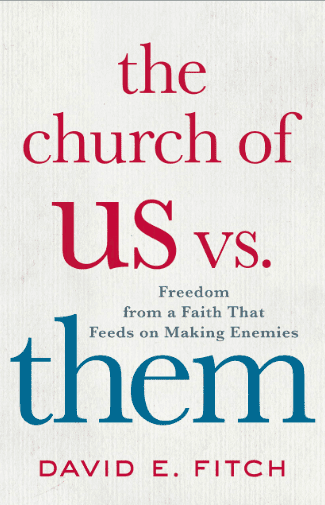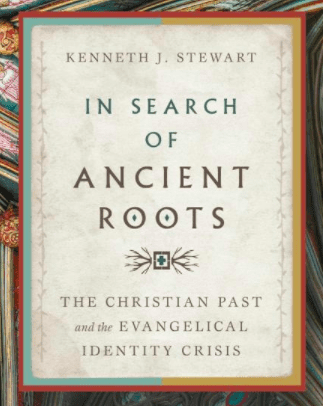I begin with this claim: the church, the local church as well as the church universal, is a politic. Instead of supporting a political party, which confuses the church into serving two masters, the church strives to be a politic. These are my words, not David Fitch’s, but I think they get to the heart of David’s section on how the church is to recover the core of our politics for mission. The problem is the Christian Nation vision, but the solution is to abandon that and to become a politic under the Lordship of Jesus, a politic of the kingdom of God. Fitch, in The End of Evangelicalism? Discerning a New Faithfulness for Mission: Towards an Evangelical Political Theology (Theopolitical Visions) examines four theologians.
 The questions we need to face are these: How is your church shaping the politic of the church as part of God’s mission in this world? How is your church a “politic”? The gospel is performed as well as proclaimed. How does it perform the mission of God? Has your church been co-opted by political partisanship?
The questions we need to face are these: How is your church shaping the politic of the church as part of God’s mission in this world? How is your church a “politic”? The gospel is performed as well as proclaimed. How does it perform the mission of God? Has your church been co-opted by political partisanship?
They are Henri du Lubac, William Cavanaugh, Nathan Kerr and John Howard Yoder. Here’s how he ties them together:
Lubac’s focus is on the Body of Christ in his physical body, in the Eucharist and in the church, but the eucharist has become a place for spectating instead of embodying that Body. Cavanaugh, another Catholic theologian, contends the eucharist births a political presence and engages society for redemption and renewal. It is thus a subversive presence.
Nathan Kerr, however, subverts both of these ideas (and Fitch’s) by contending the church is the church when it is dispersed into mission. Missiology precedes ecclesiology. The church becomes a non-site place! This leads to John Howard Yoder … who advocates the church as those who live under the Lordship of Jesus Christ — when the church embodies the “gifts.” It lives today what the world is to become. The church does this in binding and loosing, breaking bread, baptism, the gifts, and the rule of conversation.
And the church does this as the body that extends the incarnation, by living the kingdom, and by having a porous boundary.
Now Fitch digs: “Evangelicals have put forth the church as Christ’s voluntarist army dispersing individuals into the world to do the work of Christ and his mission.” He says it is “the social body of His Lordship (His Reign) incarnating Christ in the world for God’s mission” (166).
The Sunday gathering is in order to be shaped together into his body for the world in eucharist, preaching the Word and re-entry into the world. Sunday gatherings are not to be distinguished from daily living.
David Fitch observes that the new forms of evangelicalism are a witness to some form of discontent. He includes the emerging church, the missional church, neo-monasticism and the organic house-church movement. These, Fitch contends, are the “contours of the post-evangelical landscape” (179).
The questions we need to face are these: What forms of evangelicalism do you think will be most vibrant in the next twenty years or so? Is evangelicalism itself changing, or are these splinter groups with only a few years to survive? Do you think the NeoReformed/NeoPuritan movement is another witness to discontent?
David Fitch focuses on three groups in this time of discontent who are providing plausible, yet inadequate, visions for the “birthing of a renewed Christian political presence for our time” (179).
He takes up his three themes again (Inerrant Bible, Salvation, Christian Nation) and sketches how seminal young post evangelicals are proposing ideas: Peter Rollins, Brian McLaren, and Alan Hirsch with Michael Frost. By the way, Fitch thinks James Davison Hunter’s proposal of “faithful presence” is a form of NeoAnabaptism, and I completely agree.
With each of these young theologians, Fitch sees both promise and problems. So, Peter Rollins: while Rollins clearly points us to the capturing of God in Bible and while he pushes us into apophatic theology to remind us that the infinite God cannot be contained by human words, and while he wants us to focus not so much on believing the right things but believing in the right way, Fitch says Rollins is in danger of de-incarnationalizing the Word of God. The Christian is called both to affirm the centrality of Scripture as the place where God has spoken and to land in particular ways in particular settings. For Rollins Scripture can become another Master-Signifier without content. He also thinks his liturgies run the same risk.
Brian McLaren points out the problem of a too otherworldly salvation and of a decisionism that does not lead to transformation and Brian also points to the need to focus God’s mission in kingdom theology and to do all of this in the now, but he thinks McLaren is in danger of de-eschatologizing the kingdom by separating it too much for a robust christology or ecclesiology and a future eschatology. He thinks Brian is too close to seeing Jesus too much as guide and exemplar away from the ruling Lord and Christ. Kingdom too easily can become another nebulous Master-Signifier where advocacy for justice loses its trinitarian and eschatological bearings.
And he sees much of value in Hirsch and Frost in their pushing against the consumerist and attractional church, and their advocacy for organic missional work, and for a dispersed church but they run the risk of de-ecclesiologizing the church’s relationship to society. (Too much missional claims do this.) The practices of the church are too separated from the mission of the church. Which practices? eucharist, baptism, preaching, fellowship, gifts, etc.. Their claim that the proper order is christology, mission and then ecclesiology runs the risk of a Christ too separated from the church and its practices, and can suggest too individualistic of a soteriology and mission.
Thanks David. Good job. Much to think on here.











